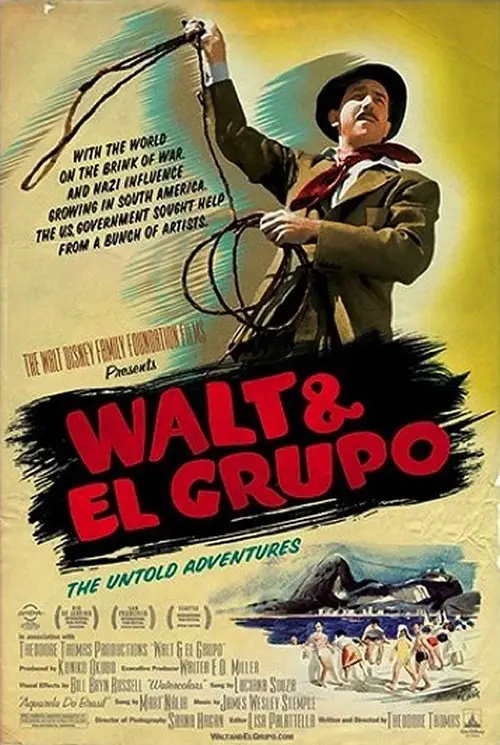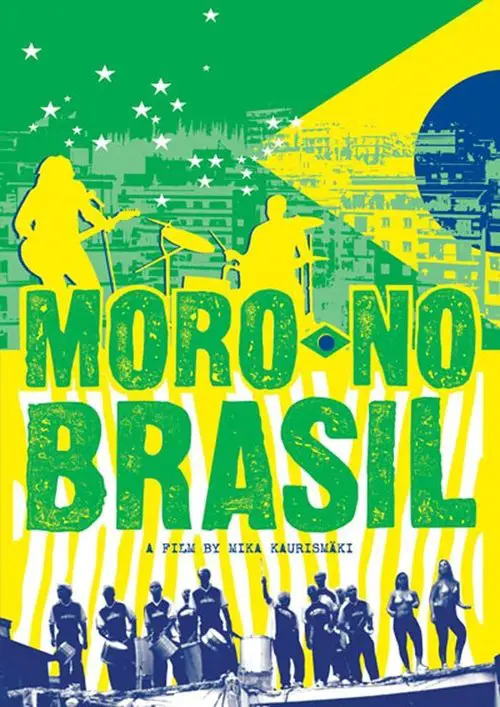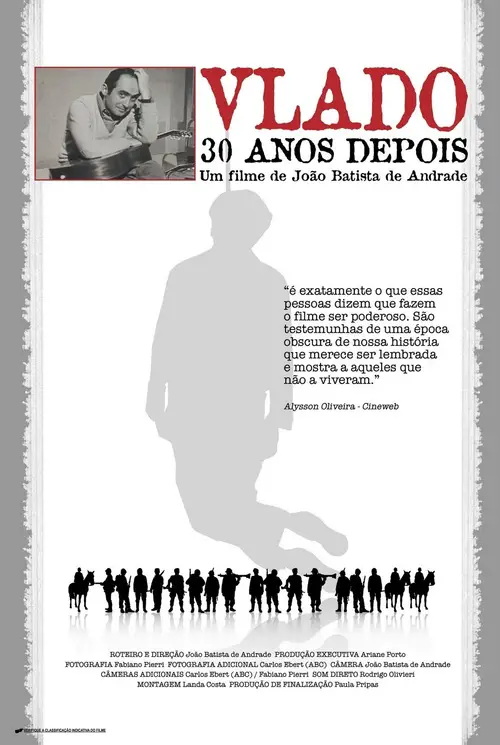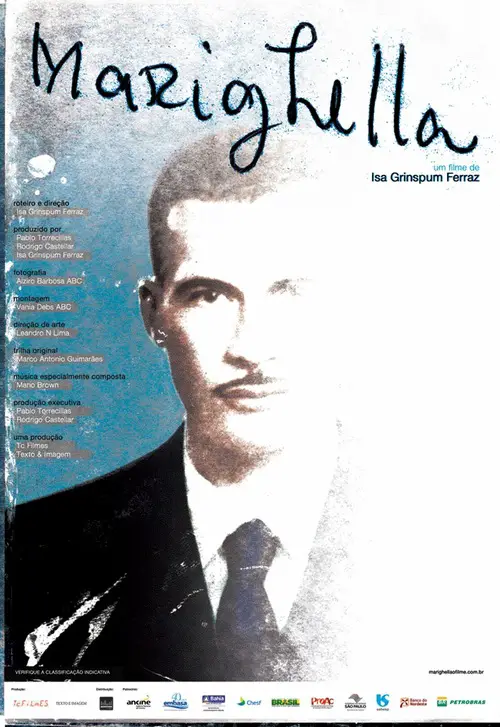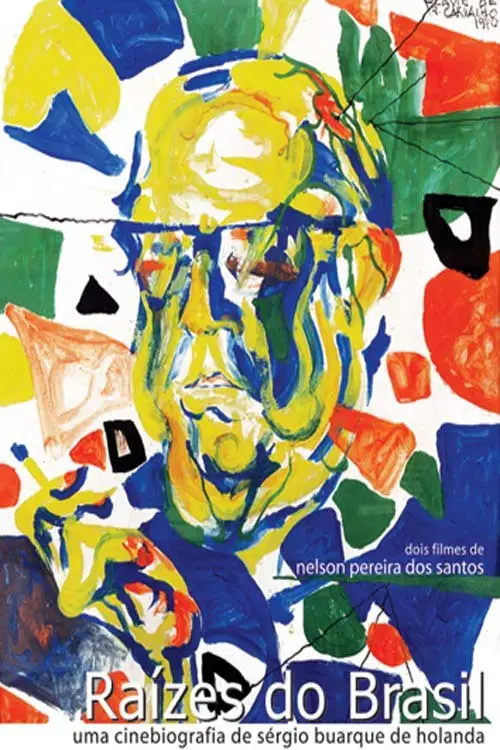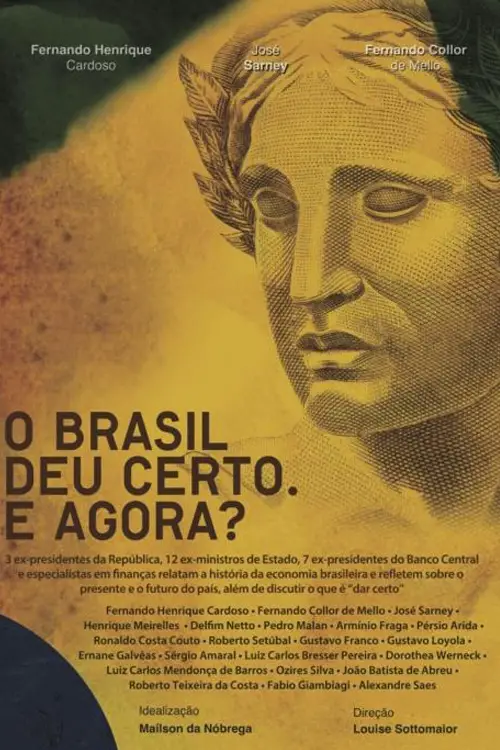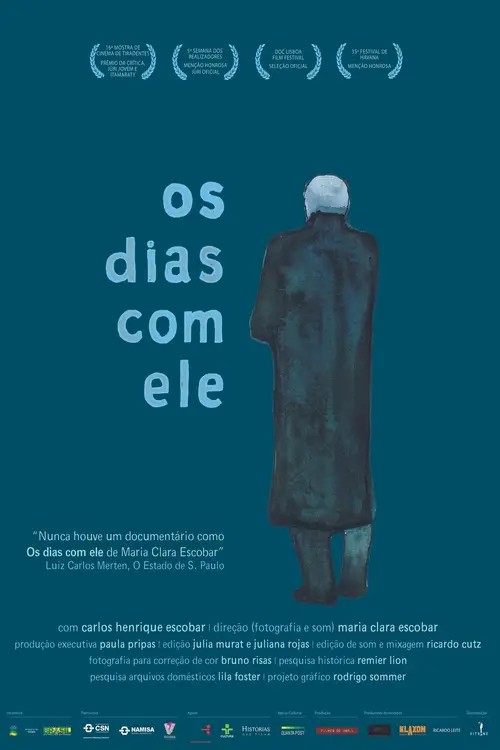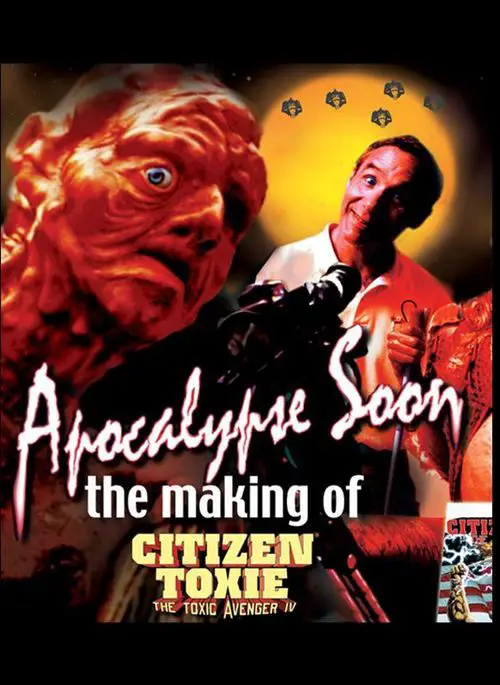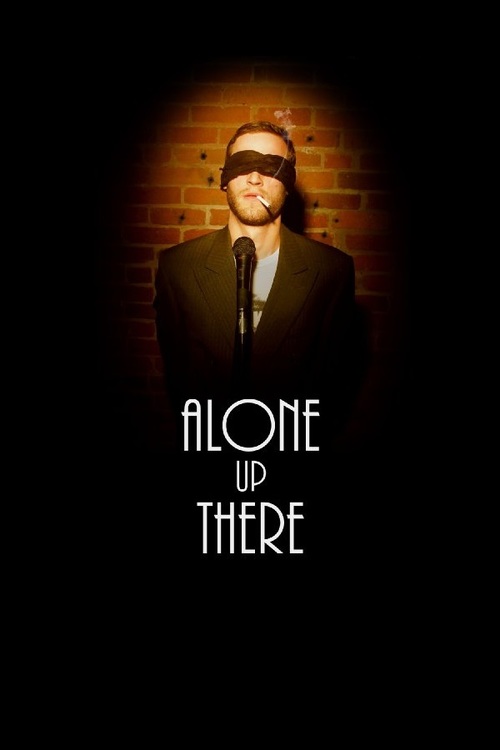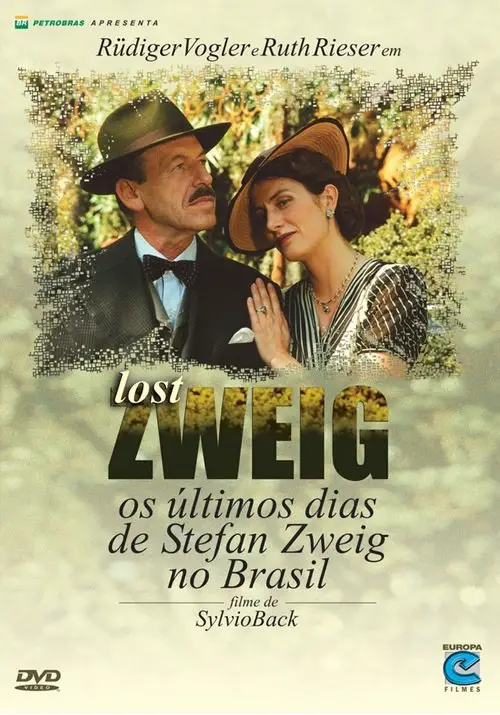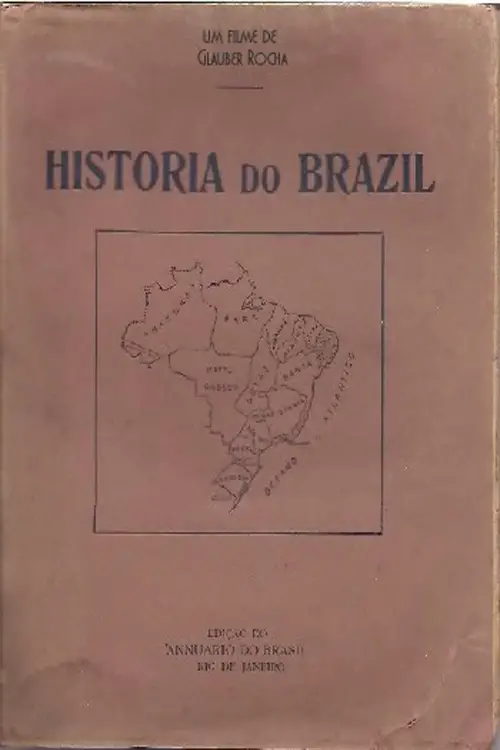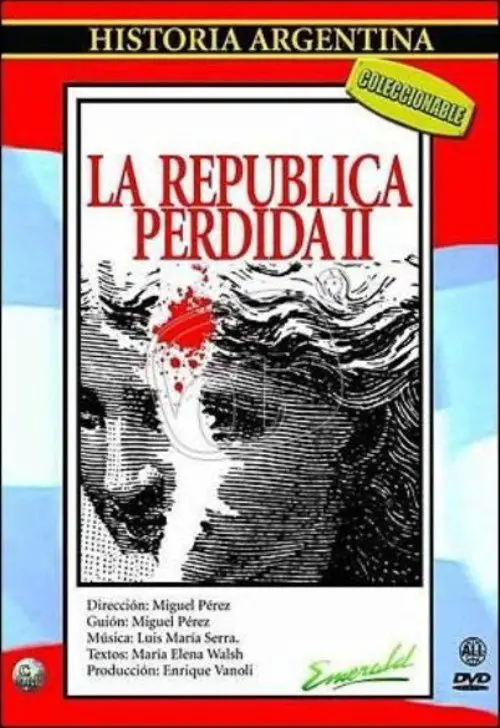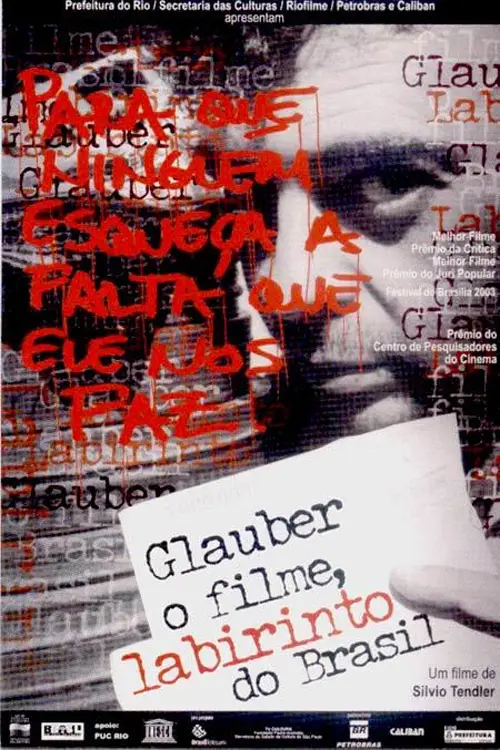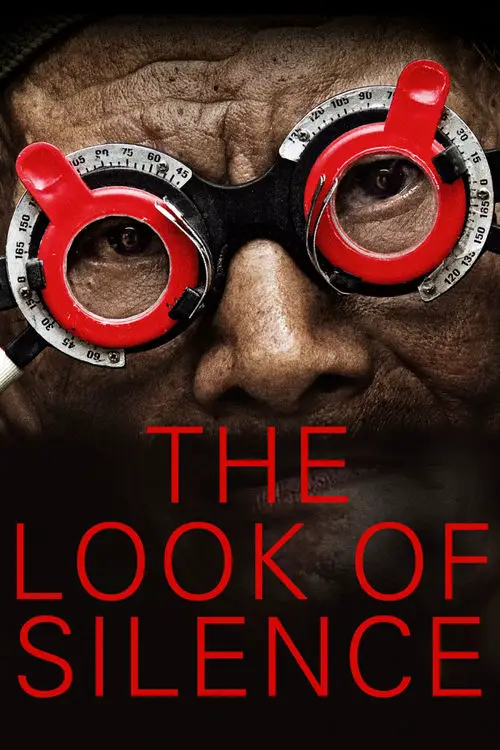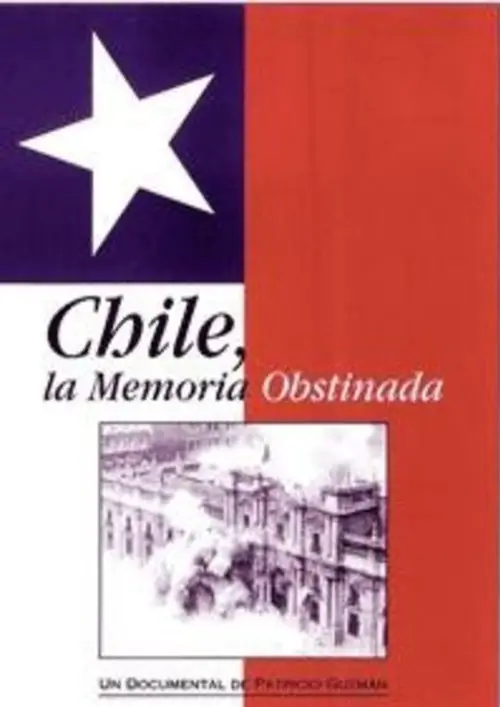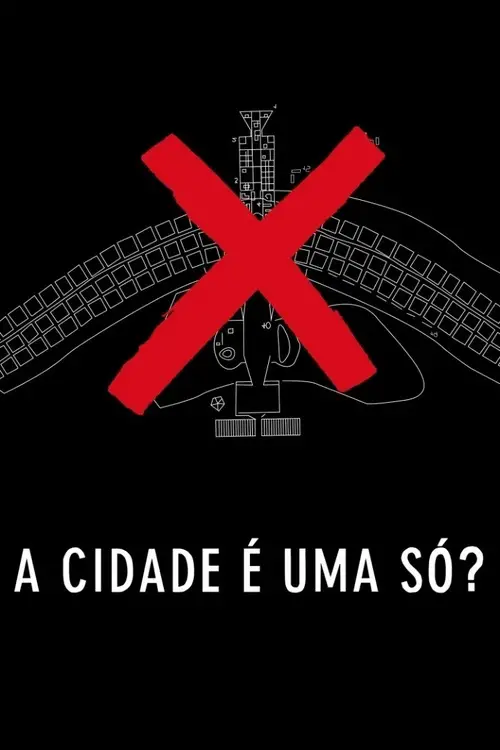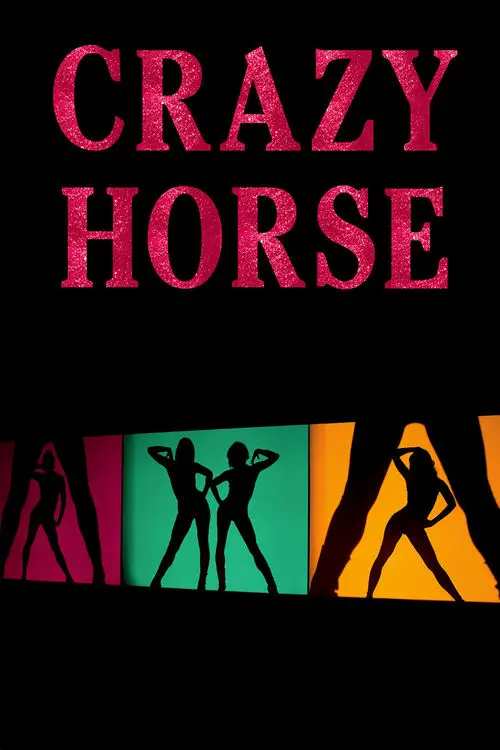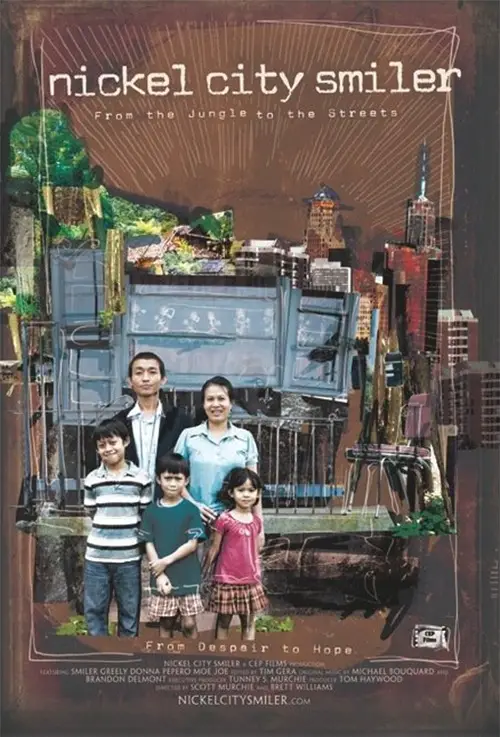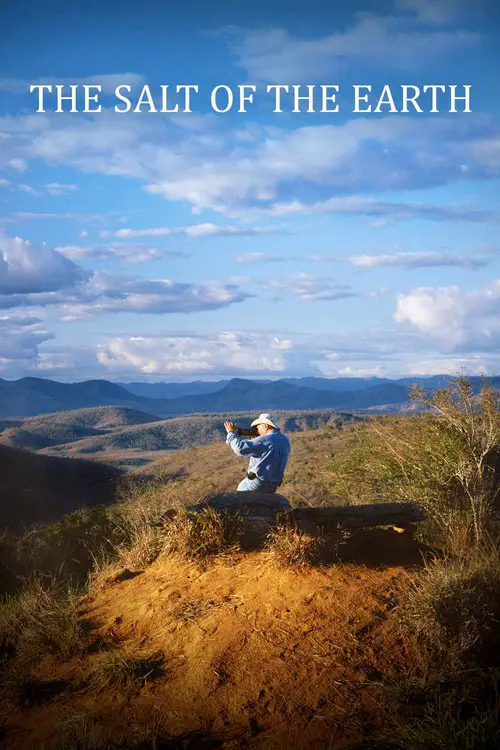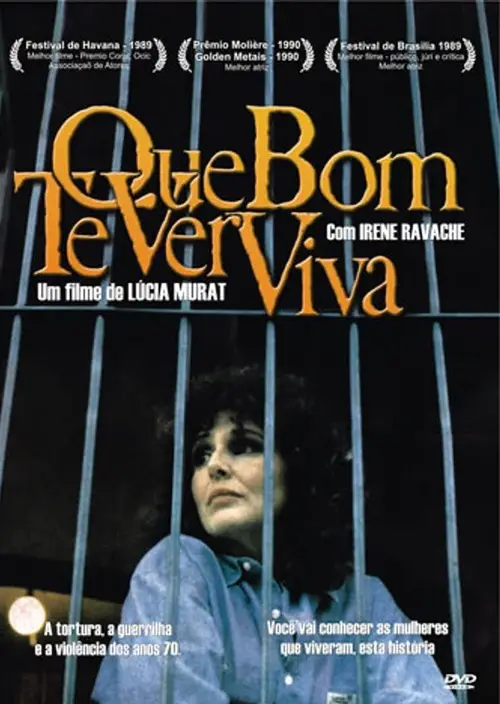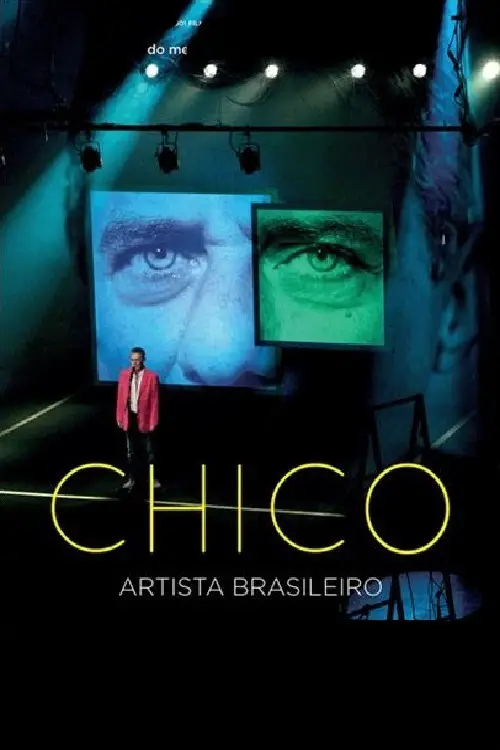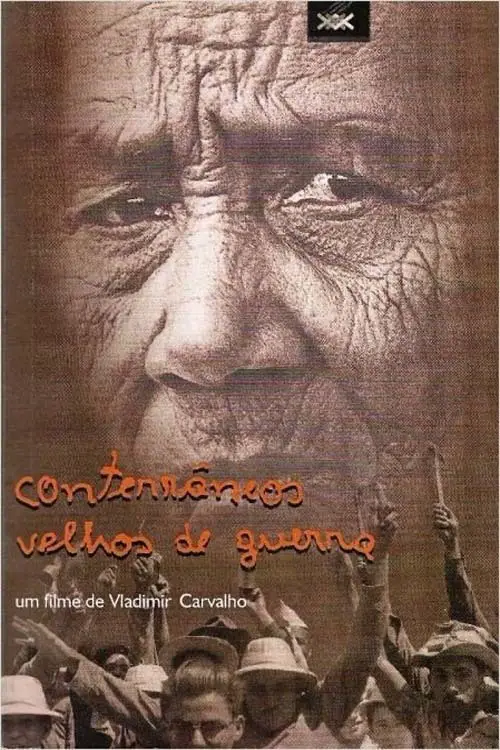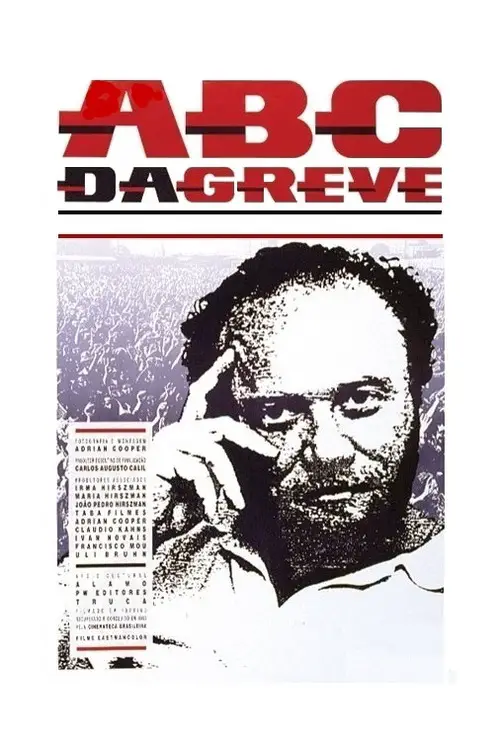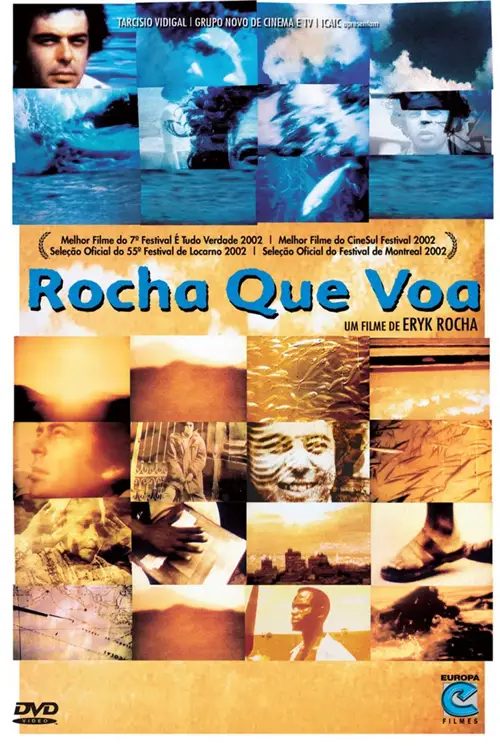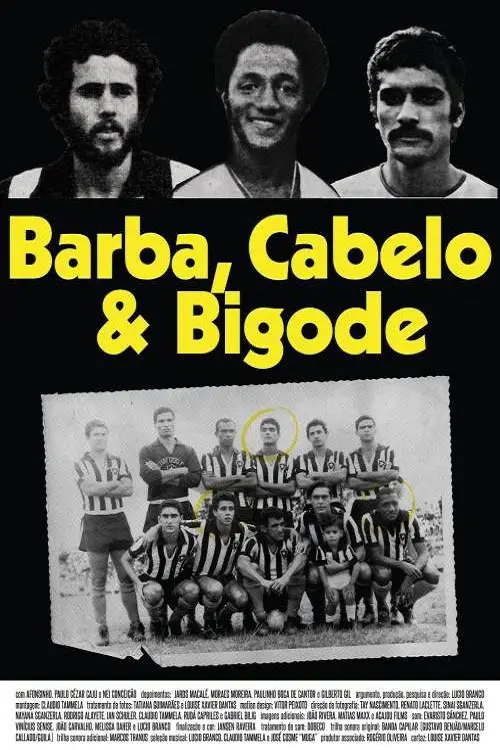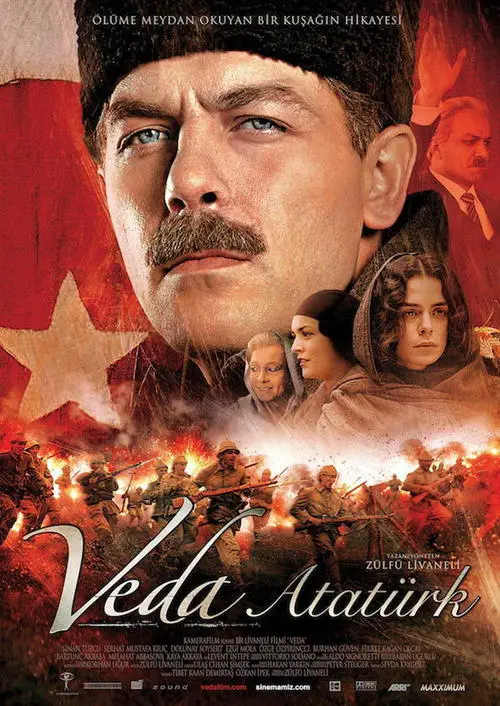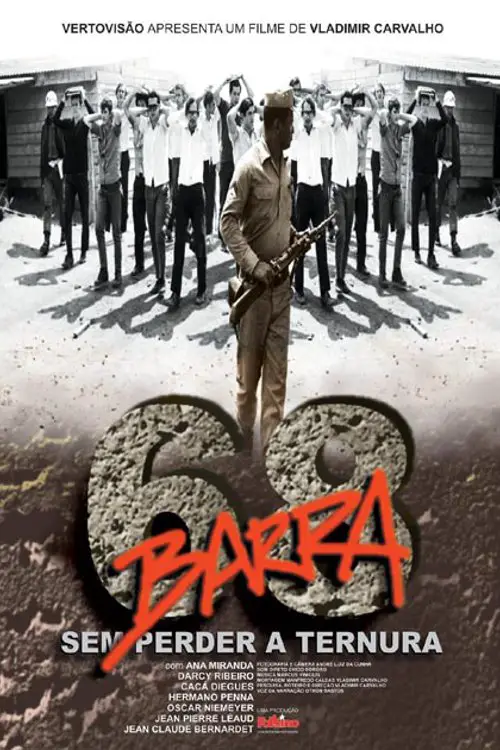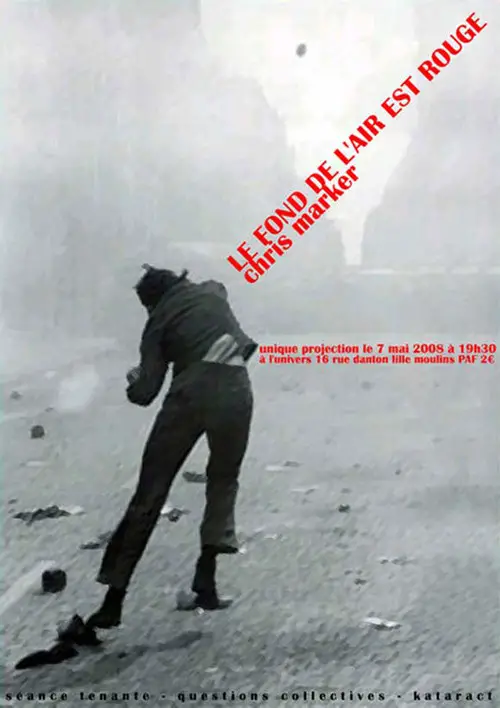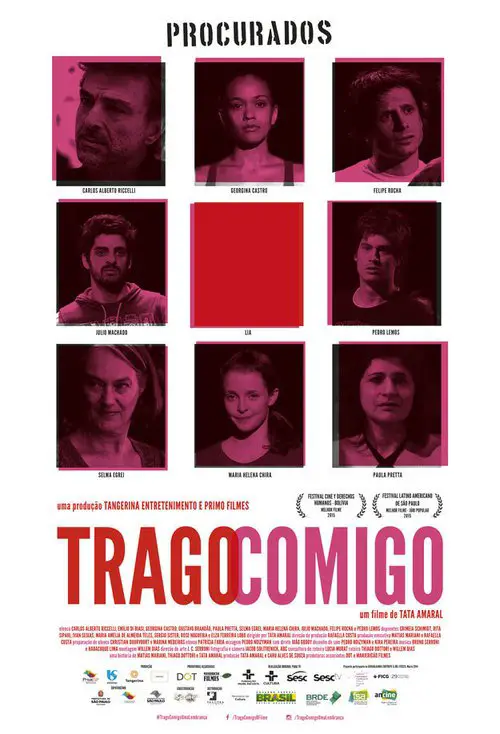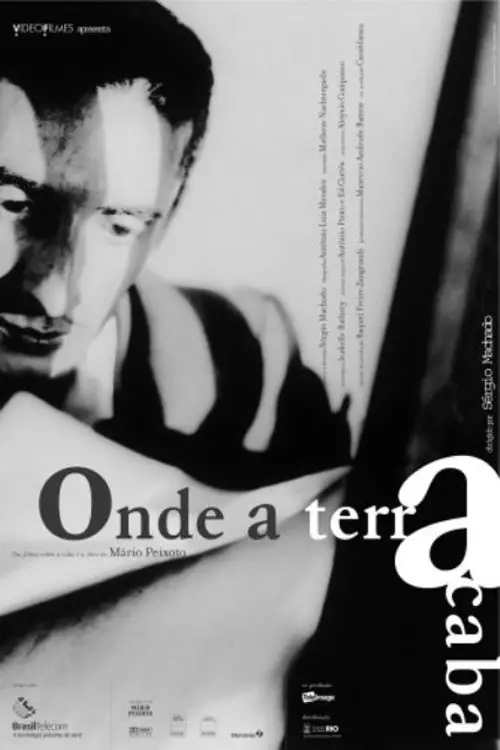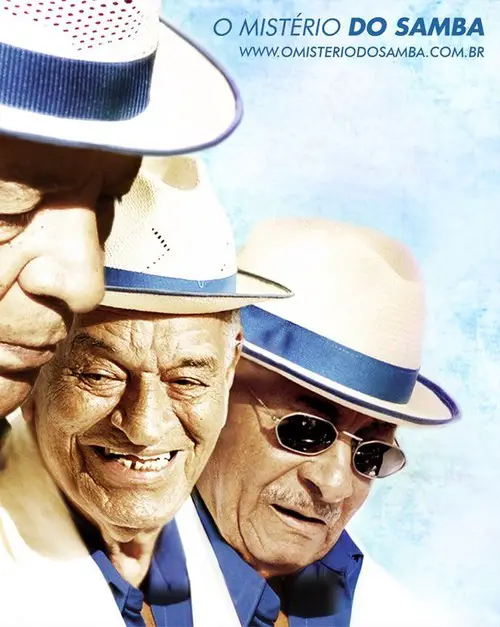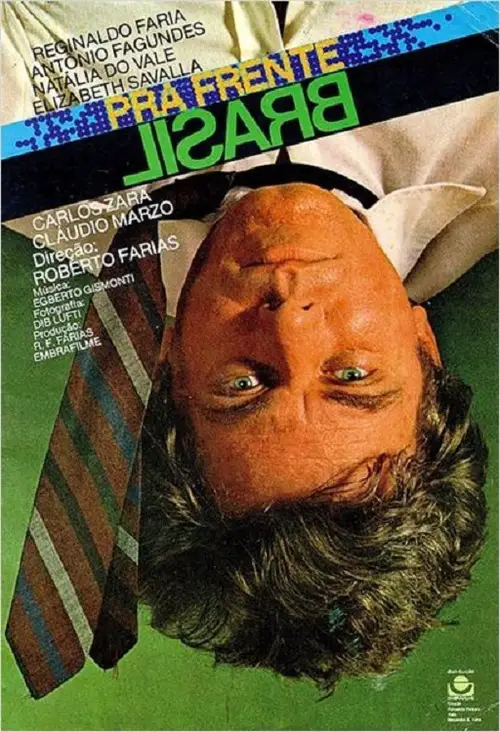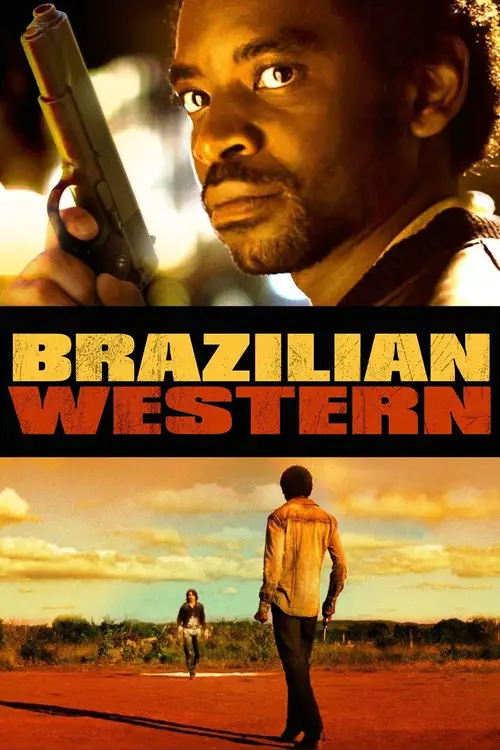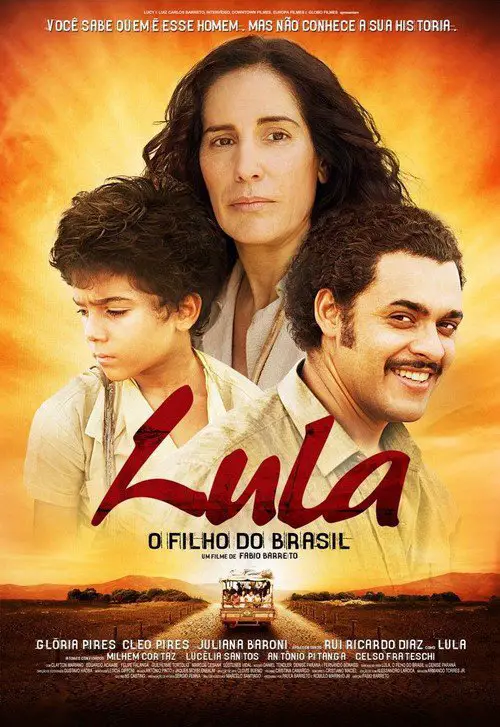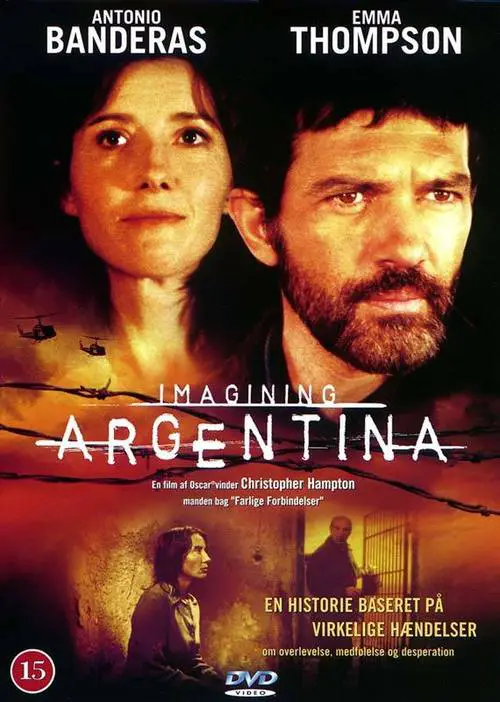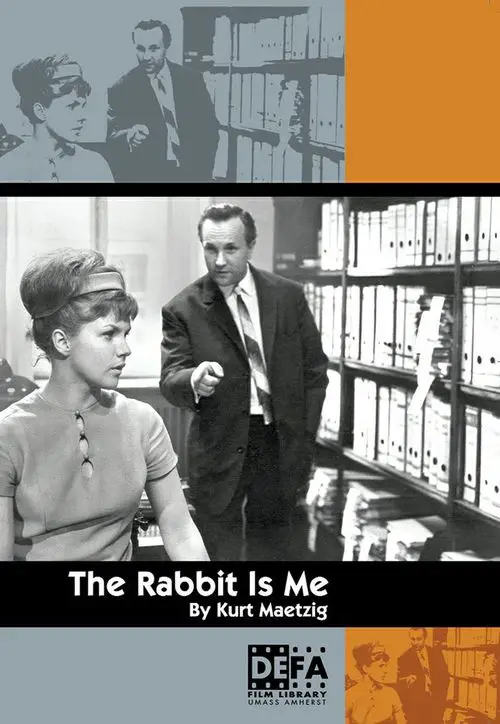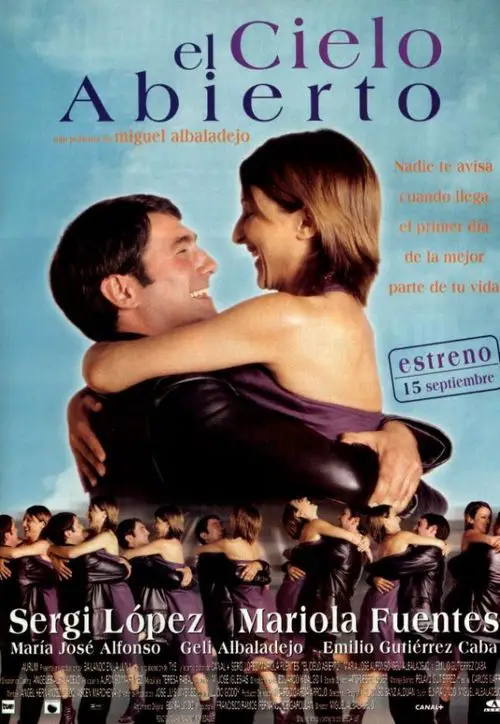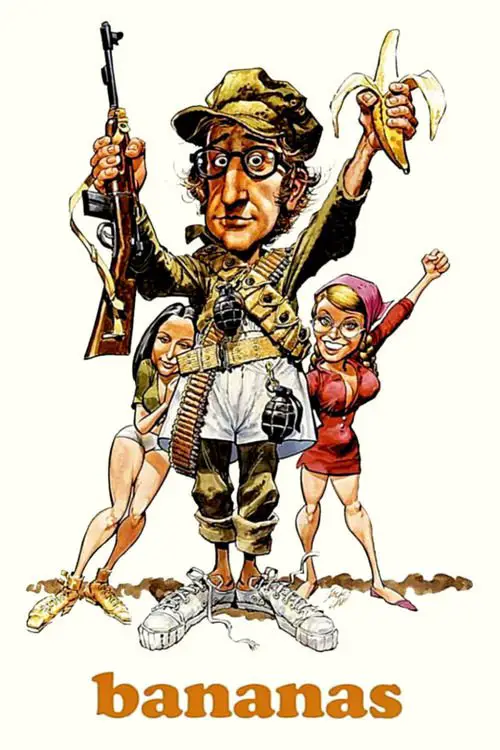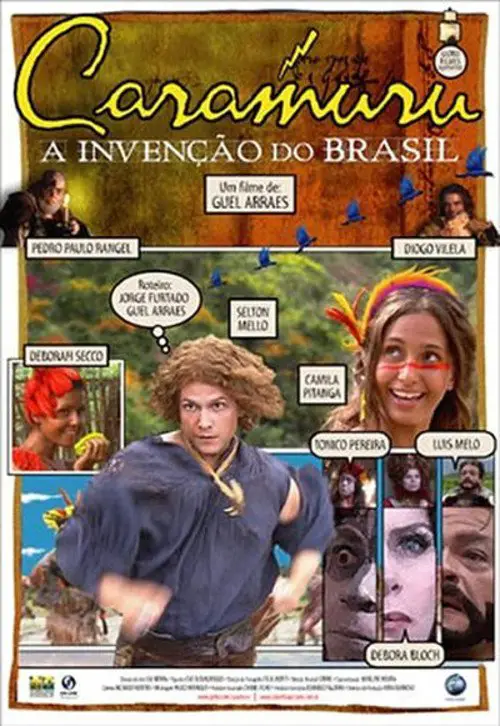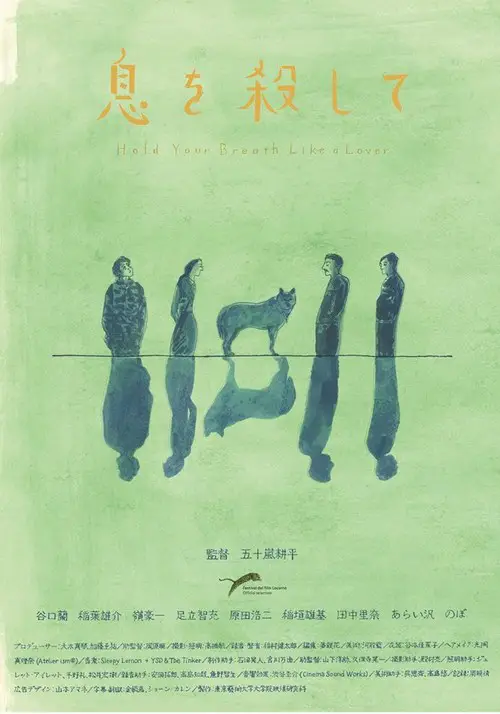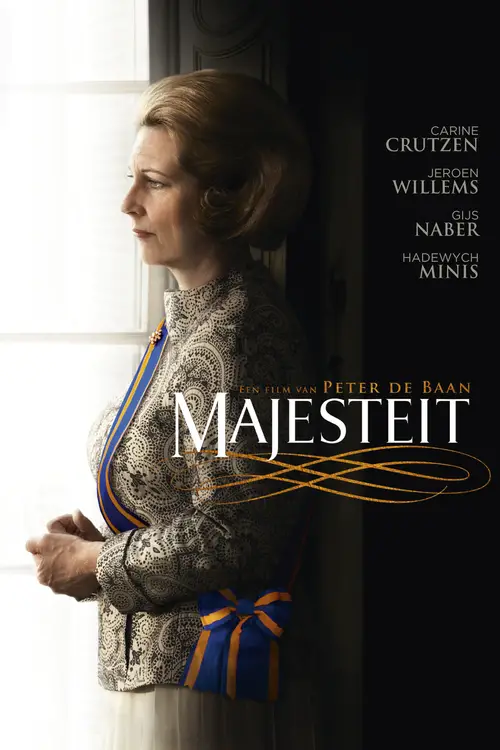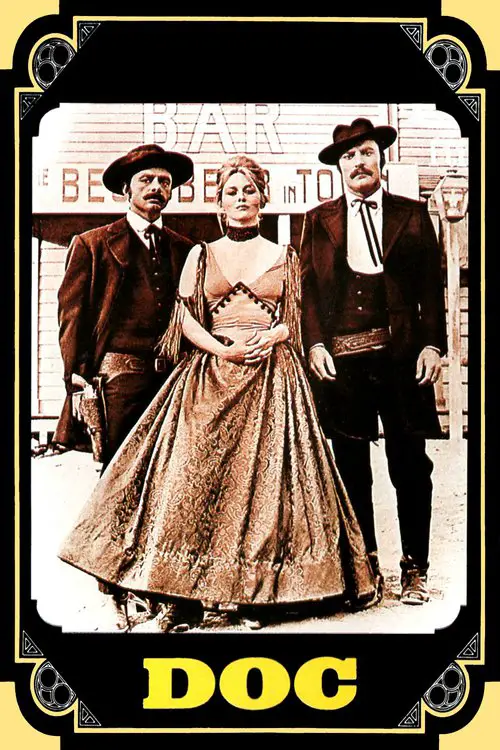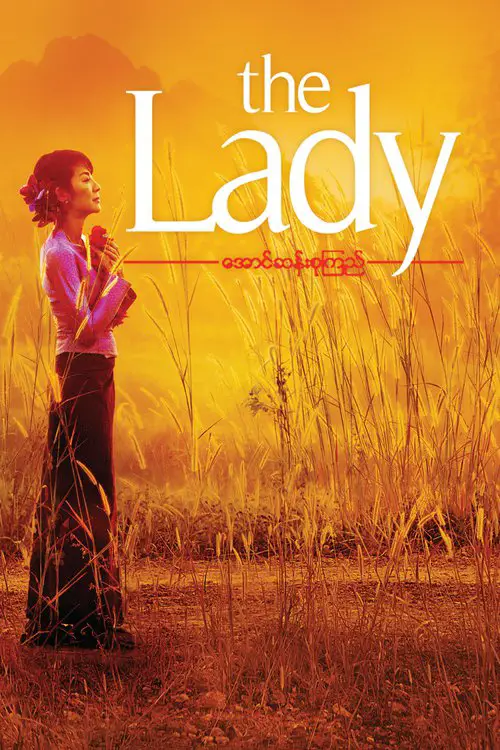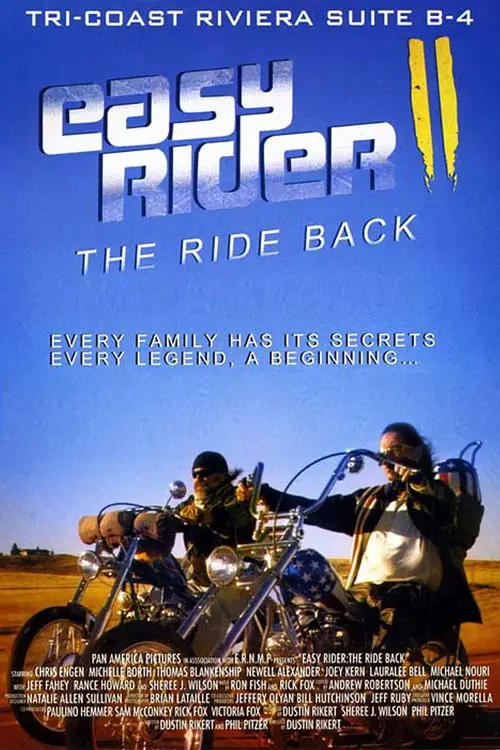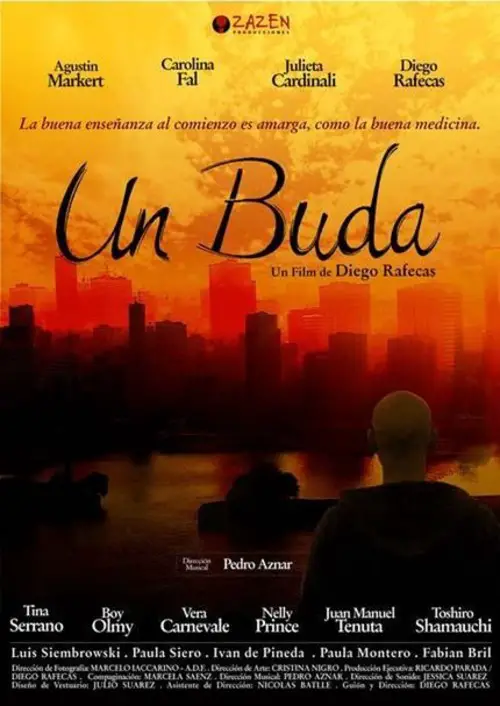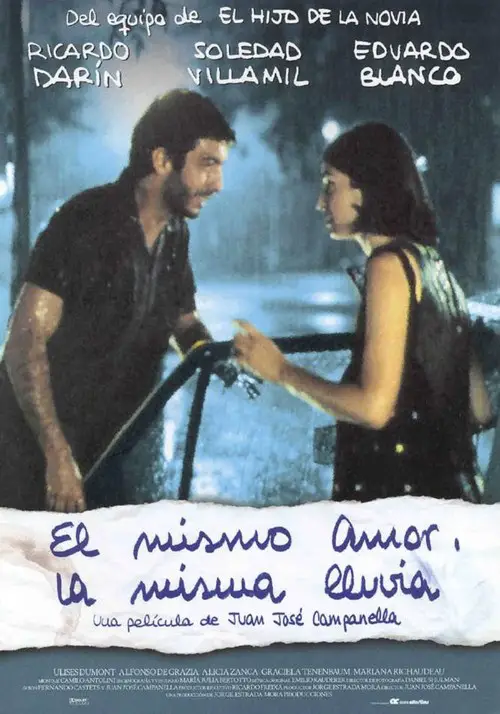Revision (2010)
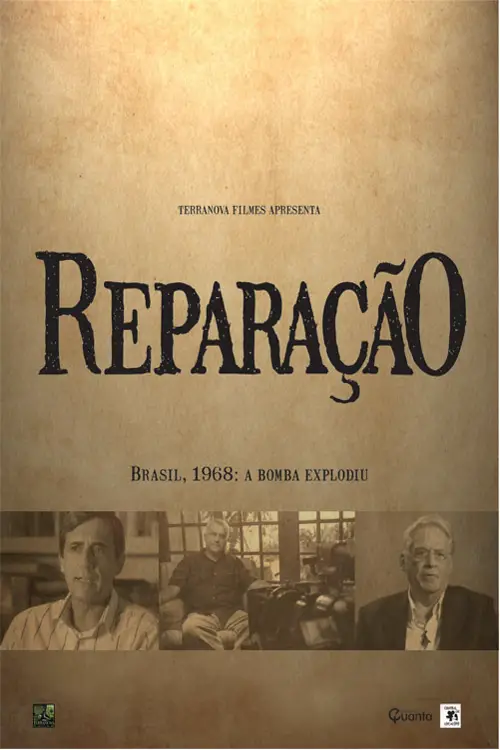
Similar movies
The year was 1941, and the world was on the brink of war. In an effort to improve relations between the Americas, the Roosevelt administration called upon one of Hollywoodâs most influential filmmakers to embark on a special goodwill tour. Written and directed by Theodore Thomas (âFrank and Ollieâ) and produced by Kuniko Okubo, the documentary WALT & EL GRUPO chronicles the amazing ten-week trip that Walt Disney and his hand-picked group of artists and filmmaking talent (later known as âEl Grupoâ) took to South America at the behest of the U.S. Government as part of the Good Neighbor Policy.
Mika Kaurismaki's documentary Moro No Brasil features performances by a variety of Brazilian musical artists, intertwined with interviews of every day Brazilians in order to give the viewer a portrait of Brazilian culture. The film includes performances by Silberio Pessoa, Darue Malungo, and Antonio Nobrega. ~ Perry Seibert, Rovi
Biggest name left militancy in Brazil '60s, Carlos Marighella served in the main political events in Brazil between 1930 and 1969 and was considered the # 1 enemy of the Brazilian military dictatorship. Communist leader victim of prison and torture, parliamentarian, author of the world translated "Manual of the Urban Guerrilla," his life was a great act of strength and courage. Directed by his niece Isa Grinspum Ferraz, the feature Marighella is a historic building and affective this man who dedicated his life to thinking about Brazil and transform it through its action.
3 ex-presidents of Brazil, 12 ex-ministers of State, 7 ex-governors of the Central Bank, bank owners and finance specialists tell the Brazilian economic history and speculate about the present and the future of the country. 125 years ago Brazil was a poor country with slavery. 60 years ago 50% of Brazilians were illiterate. 25 years ago inflation rate reached 84% a month and 35% of the population was extremely poor. In 2013, Brazil ranks the seventh world's largest economy, inflation reached 5,4% a year, poverty was reduced to 12% and the country is looking forward to be wealthy. Will it happen? Agile cutting, simple language and smart graphic arts allow the answer to this and other questions to be interesting and available to all audiences.
The discoveries and frustrations on accessing a memory of a father and of a time in the Brazilian history that are rarely public. The young filmmaker plunges into this unknown past of her almost unknown father. He, a Brazilian intellectual, imprisoned and tortured during the military dictatorship, is silent about this since that time. A father and a fatherland that does not like to answer any questions, that loves but rarely talks.
The stand-up comedian is a special breed, both an artist and an artisan. They work by painstakingly developing a persona, scripting and editing an act, and revising it on the spot to suit the energy of a given audience. If the audience does not grasp the countless hours crafting the routine, and the empathic micro-calculations, then the act was a success... well, as long as it was funny.
Filme de montagem realizado no exÃlio de 1971 a 1973 entre Cuba e Roma. à considerado um trabalho âsemi-acabadoâ de Glauber que tem um certo caráter pedagógico e procura através de uma montagem dialética fazer uma revisão crÃtica da colonização, da luta de classes, do messianismo e da implantação dos governos populistas no Terceiro Mundo. Há uma cronologia nos fatos apresentados que, apoiados em vasta iconografia (filmes, gravuras, fotos,etc...) operam, contudo, associações âlivresâ que permitem ao espectador uma visão âpolifônicaâ da âHystorya do Brazylâ.
A history of Argentina's last military dictatorship (1976-1983). After "La Republica Perdida" was made, which covered 1930 to 1976, there was an important part of Argentina's history yet to be told, which was too recent to be covered by the first documentary. The first movie was made at the end of the last dictatorship. This second documentary covers this last dictatorship from 1976 to 1983.
The city of Brasilia hoped to become, from its very architecture, the expression of a modern urban conception and an egalitarian society. However, neither the workers hired to pursue this project, nor the constant migratory flow that took place from the beginning, fitted in the governmentâs plan. In 1971, began what was known as the âCampaign to Eradicate Invadersâ. The parents of director Adirley Queirós were amongst the thousands of people displaced towards Brazilian outskirts, into a suburb that borrowed the campaign initials and was named Ceilândia. Queirós, member of the first generation of the âceilandesesâ, was âan offspring of the contradiction that resulted in being a part of Brasilia without being from Brasiliaâ. Together with other locals, the director reflects about the history, the transformations, and the future of this place where the hypocritical official jingle âA cidade é uma só!â is no longer heard.
During the last forty years, the photographer Sebastião Salgado has been travelling through the continents, in the footsteps of an ever changing humanity. He has witnessed the major events of our recent history ; international conflicts, starvations and exodus⦠He is now embarking on the discovery of pristine territories, of the wild fauna and flora, of grandiose landscapes : a huge photographic project which is a tribute to the planet's beauty. Sebastião's Salgado's life and work are revealed to us by his son, Juliano, who went with him during his last journeys, and by Wim Wenders, a photographer himself.
ABC of a Strike captures the 1979 metal workers strikes outside of São Paulo. The footage sat untouched until after the death of highly regarded director Leon Hirszman in 1987, by which time the material had a new relevance. The gripping film captures the negotiations between the labor unions and the factory bosses and shows the birth of the regionâs Workerâs Party, as well as the emergence of its charismatic leader, Luiz Inácio Lula da Silva (known as âLulaâ). Rising from extreme poverty, Lula gained national prominence as a union activist during the late 70s and early 80s. After being jailed during his time as a union leader, he eventually become Brazilâs president from 2003 to 2010. -Description via Wexner Center Film/Video
Afonsinho, Paulo Cézar Caju and Nei Conceição started their careers in the mid-1960s, a time of strong political repression in Brazil. Originally teammates of a celebrated generation of the Botafogo football team superstars, they did not give up their freedom when the military dictatorship decided to take control of the field.
The atomic bomb, the specter of a global nuclear holocaust, and disasters like Fukushima have made nuclear energy synonymous with the darkest nightmares of the modern world. But what if everyone has nuclear power wrong? What if people knew that there are reactors that are self-sustaining and fully controllable and ones that require no waste disposal? What if nuclear power is the only energy source that has the ability to stop climate change?
Humanityâs ascent is often measured by the speed of progress. But what if progress is actually spiraling us downwards, towards collapse? Ronald Wright, whose best-seller, âA Short History Of Progressâ inspired âSurviving Progressâ, shows how past civilizations were destroyed by âprogress trapsââalluring technologies and belief systems that serve immediate needs, but ransom the future. As pressure on the worldâs resources accelerates and financial elites bankrupt nations, can our globally-entwined civilization escape a final, catastrophic progress trap? With potent images and illuminating insights from thinkers who have probed our genes, our brains, and our social behaviour, this requiem to progress-as-usual also poses a challenge: to prove that making apes smarter isnât an evolutionary dead-end.
A friendship started in childhood in Thessaloniki firstly turned into being comrade in arms and then a half-century brotherhood and fraternity following the same ideals until the death upon proclamation of the Republic; Ataturk & Salih Bozok Veda Ataturk (The Farewell Ataturk) is the story of a brotherhood, portrayal of milestones in Ataturk's life and the story of a commander commanding a generation that challenged the death to save the homeland.
On 17 May 1931, the young director Mário Peixoto released his masterpiece "Limite" in a premiere in Capitólio Theater in Rio de Janeiro to astonished audiences bewildered by the impressive and poetic images. Considered by many viewers the best Brazilian movie ever made, this feature has never been released commercially. However, in a great paradox, Mário Peixoto has never made any other movie. The director Sérgio Machado pays a great tribute to the life and work Mário Peixoto a.k.a. Maçarico by his close friends with this documentary, using his diary; footages of "Limite", the never concluded "Onde a Terra Acaba" (1933) and the short "O Homem do Morcego" (1980); and interesting testimonies of Olga Breno, Ruy Solberg, Nelson Pereira dos Santos and Walter Salles among others.
Elena, a young Brazilian woman, travels to New York with the same dream as her mother, to become a movie actress. She leaves behind her childhood spent in hiding during the years of the military dictatorship. She also leaves Petra, her seven year old sister. Two decades later, Petra also becomes an actress and goes to New York in search of Elena. She only has a few clues about her: home movies, newspaper clippings, a diary and letters. At any moment Petra hopes to find Elena walking in the streets in a silk blouse. Gradually, the features of the two sisters are confused; we no longer know one from the other. When Petra finally finds Elena in an unexpected place, she has to learn to let her go.
An adaptation of the eponymous song by Renato Russo, a famous Brazilian singer and composer who in the style of Bob Dylan knew how to delight crowds by telling stories and singing with his lyrics. Focusing on the love story of outlaw João do Santo Cristo with Architecture major student Maria Lúcia, the movie takes place in Brasilia in the early 80s. In a clash of interest, drug dealers and the police conflict with one another,while the end of the military dictatorship in the Capital of Brazil, Brasilia takes place. The wanderings and tedium of a young rocker, who lived in a city still being built, are the backdrop for this story.
JULIA covers the 1930s when Lillian attained fame with the production of her play "The Childrens' Hour" on Broadway. It centers on Lillian's relationship with her friend, Julia. It's a relationship that goes beyond mere acquaintance and one for which the word "love" seems appropriate. While Julia attends the University in Vienna, Lillian suffers through revisions of her play with her mentor and sometimes lover Dashiel Hammett. After becoming a celebrated playwright, Lillian is invited to a writers conference in Russia. Julia, having taken up the battle against fascism, enlists Lillian en route to smuggle money through Nazi Germany which will assist in the Anti-Fascist cause. During a brief meeting with Julia on this trip, Lillian learns that Julia has had a child which is called Lilly.
Accomplished British screenwriter Christopher Hampton directs the political drama Imagining Argentina, based on the novel by Lawrence Thornton. Set during the unsettling disappearances in Buenos Aires during the dictatorship of the 1970s, the film involves theater director Carlos Rueda (Antonio Banderas) and his wife Cecilia (Emma Thompson). Shortly after Cecilia writes an editorial commentary questioning the mysterious abductions, she is herself abducted and taken into police custody. Soon Carlos develops the supernatural ability to see into the future and he imagines his wife meeting an awful fate during an escape attempt. To make matters worse, their teenage daughter Teresa (Leticia Dolera) is also kidnapped. Imagining Argentina was nominated for the Golden Lion at the 2003 Venice Film Festival. SCREENED/AWARDED AT: Venice Film Festival (ref. Amazon)
The Rabbit Is Me was made in 1965 to encourage discussion of the democratization of East German society. In it, a young student has an affair with a judge who once sentenced her brother for political reasons; she eventually confronts him with his opportunism and hypocrisy. It is a sardonic portrayal of the German Democratic Republic's judicial system and its social implications. The film was banned by officials as an anti-socialist, pessimistic and revisionist attack on the state. It henceforth lent its name to all the banned films of 1965, which became known as the "Rabbit Films." After its release in 1990, The Rabbit Is Me earned critical praise as one of the most important and courageous works ever made in East Germany. It was screened at The Museum of Modern Art in 2005 as part of the film series Rebels with a Cause: The Cinema of East Germany.
Apolônio Brasil was a cult pianist who used to play in nightclubs in Rio de Janeiro, in the 1950s and 1960s. Quite a character, Apolônio was loved by women, idolized by his audience and friends, besides being extremely high-spirited and charming. For all that, his brain is removed after his death and becomes the center of a dispute among an American scientist, Dr. Bóris, who wants to study it, his friends and his son Paluca. The film is an attempt to pay homage to the nightlife in Rio de Janeiro of the 50s, and to the "chanchada" a genre of musical-comedy typically Brazilian. - Written by lukejoplin@infolink.com.br
In Hong Kong's Paradise Cove Sharon (Chrissie Chau) and Rachel (Theresa Fu) work at a restaurant of their kung fu master uncle Tao (Lo Mang) while taking on rivals in beach volleyball matches. The wealthy Bu family has plans to have the beach made into a playground for the rich and getting rid of the youth at the beach. Mrs. Bu's two Eurasian daughters, Natalie (Jessica C) and Phoenix (Phoenix Valen) challenge Sharon and Rachel to a volleyball match which Natalie and Phoenix win. Phoenix and Natalie give Rachel and Sharon a challenge: if the two local girls enter and win the upcoming All Hong Kong Womenâs Volleyball tournament, Mrs. Bu will revise her plans to further develop the area. Sharon and Rachel feel they don't have a chance to win the tournament. Their uncle then Tao teaches the girls kung fu skills that they apply to volleyball.
Miguel, a young psychiatrist working in Madrid, learns that his wife has just dumped him for no one else than his own father while he's expecting his mother-in-law's visit, who's come to the city on a medical revision, and doesn't know anything about her daughter's affair; to make things worse, one of Miguel's deranged patients has just stolen his wallet. Going to his patient's home to retrieve his wallet he'll meet instead his spontaneous and outspoken hairdresser sister Jasmina, who's bound to change Miguel's ordered, upper-middle-class world for good.
Diogo Ãlvares, a Portuguese map illustrator, reaches the Brazilian coast, after his caravel sinks. He is saved by the Indian chief Itaparica and his two daughters, Paraguaçu and Moema. They call him Caramuru and together they engage in a happy love triangle. But the chance to return to Portugal arises, and it is clear this amoral arrangement cannot last.
December 30th, 2017. Two years before the Tokyo Olympics, due to a revision of the Constitution, a National Defense Force is created in Japan and it starts military operations. In an incineration plant, a dog goes lost, but when Tani goes looking for him, she finds nothing. In the plant, Yanais takes down the Christmas decorations and replaces them with the ones for New Year. Gou, addicted to survival games, comes to the plant during the night and starts playing video games with Ken, even if it is his day off. In the meantime, Adachi is just watching their game to kill time. However, all these men share similar problems: pregnancy, adultery, family issues and a friend who died in the war. Meanwhile, Tani, who is troubled with her immoral relationship with Adachi, begins to feel that her father, who was the plantâs manager and is supposed to be dead, seems to be around somehow.
One hour before the State Opening of Parliament, something very unusual happens. The Prime Minister appears and demands an adjustment to the Queen's speech. The speech concerns aid to Africa. Even with all the pressure around the State Opening, Beatrix goes back in time, and remembers her banishment to Canada, the visit to the victims of the Flood disaster and the turbulence suffered by her parents at Palace Soestdijk during the Hofman case.
The film is about the life of Aung San Suu Kyi (Yeoh) who spent more than a decade under house arrest. David Thewlis portrays Suu Kyi's husband, Dr. Michael Aris. Rebecca Frayn began working on the project after she and her husband, producer Andy Harries, visited Burma in the early 1990s.Harries' production company Left Bank Pictures began development of the script in 2008 under the working title Freedom from Fear. Harries wanted Michelle Yeoh as the lead and had the script sent to her.
In this revisionist drama, the film delves into the family lineage of Wyatt Williams, the character made famous by Peter Fonda in the original Easy Rider Movie. Centering around the Williams family, and their internal family struggles throughout the eras of the 40's to present day, as they struggle to connect with one another through the only way they know how. Their love of motorcycles and the freedom of the ride.
Un Buda follows two brothers orphaned as children when their parents were taken by the military during the "Dirty Wars" of the 1970s in Argentina. Tomas is now a drifting and withdrawn young man who experiments with ascetic practices and has an instinctive compassion for others. His older brother Rafael is a university philosophy professor, detached and alone. Their struggles with each other and the world around them in Buenos Aires take a dramatic turn when they find themselves at a rural Zen center.
Jorge is a writer for a left-leaning Buenos Aires magazine that's at odds with the country's military dictatorship. He meets lovely and intelligent actress Laura and begins an on-and-off romance that will continue for the next two decades. Fearful of commitment, Jorge initially moves on from her and his fortunes suffer, but the situation changes when he and Laura renew their acquaintance. Meanwhile, the country undergoes a political transformation.
© Valossa 2015–2026
| Privacy Policy
